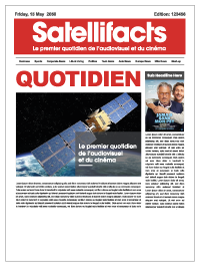
The 67th edition of the Eurovision Song Contest, which was held on Saturday May 13 in Liverpool, was watched by 162 million viewers, the BBC announced on Friday May 26, which was the host broadcaster, from figures compiling the number of people from the 38 countries where the event was broadcast. The competition “has never been more popular”, welcomed in a press release Noel Curran, director of the EBU (European Broadcasting Union) which brings together the broadcasters of the event.
In the United Kingdom, 9.9 million viewers watched the final (+12% compared to that of 2022) for an audience share of 63%. In Sweden, 2.3 million people followed the final won by national candidate Loreen, for an audience share that climbed to 82.3%. In France, the ceremony was followed by 3.48 million people on France 2, up 10% compared to 2022, for a share of 25.6% (Satellifacts, May 14).
The competition was also widely followed on the internet and social networks with 7.6 million viewers on YouTube, including 3.2 million for the semi-finals held on May 9 and 11, and 4.8 million people on TikTok. Videos tagged with the hashtag #Eurovision even garnered 4.8 billion views between April 30 and May 15.
For the first time this year, people not residing in one of the 37 countries participating in the competition could still take part in the vote to elect the winning title. The organization thus recorded votes from more than 100 countries outside the competition, including the United States, Canada, Kosovo, Luxembourg and New Zealand.
Remember that this 67th edition took place in the United Kingdom on behalf of Ukraine, the winning country in 2022 with the group Kalush Orchestra.

